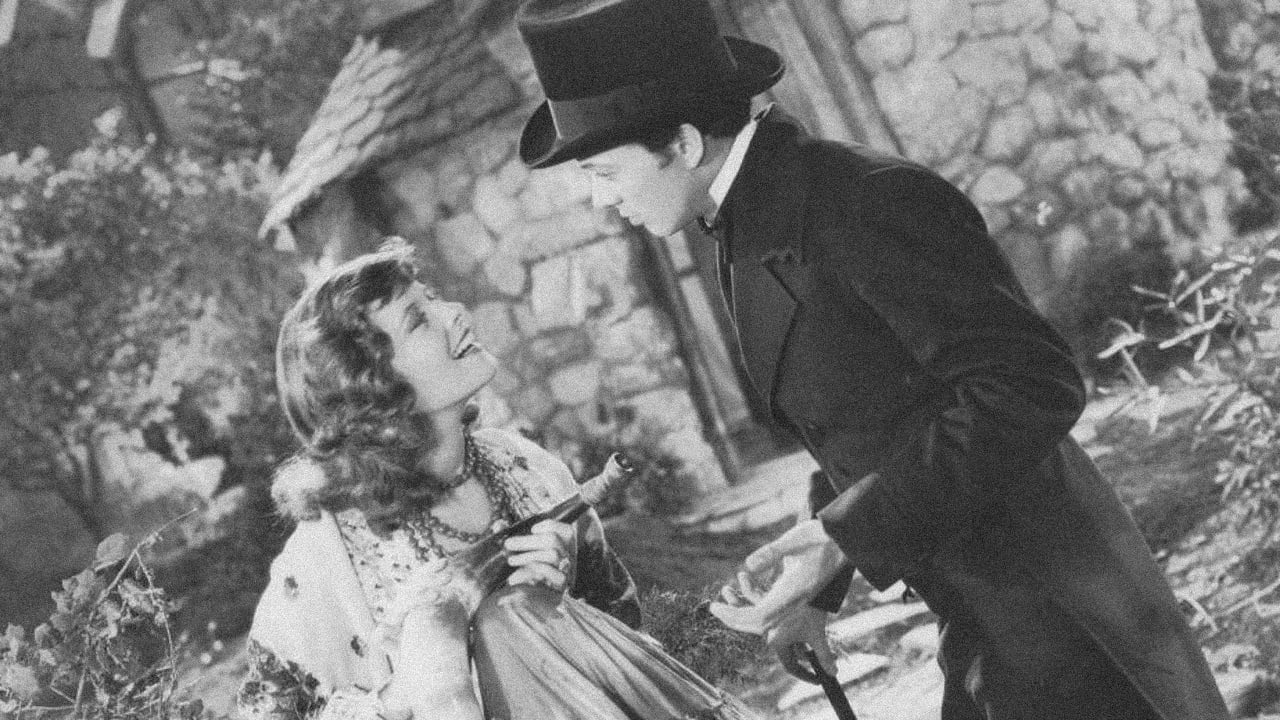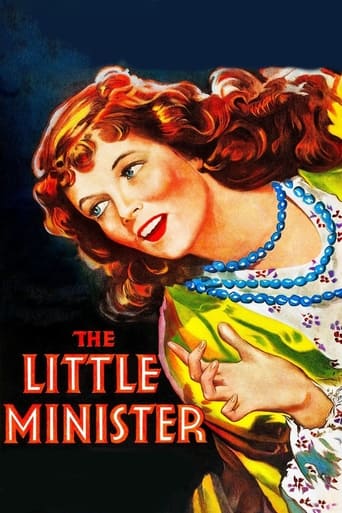Steinesongo
Too many fans seem to be blown away
YouHeart
I gave it a 7.5 out of 10
Pacionsbo
Absolutely Fantastic
mraculeated
The biggest problem with this movie is it’s a little better than you think it might be, which somehow makes it worse. As in, it takes itself a bit too seriously, which makes most of the movie feel kind of dull.
HillstreetBunz
I have watched this movie twice in the last year, after the BBC unearthed it from some long forgotten vault. There's no question that it seems an oddity, archaic in style, tone and subject matter. But if the viewer can overcome these barriers, and in my case the poor sound quality of the version the BBC showed, it's an involving tale with engaging central performances from the principles (and pretty reasonable Scottish accents too) and fine support from stalwarts such as Alan Hale and Donald Crisp who became well known faces over the next 40 years. What also interests, is that the period the movie was made is now over 3/4 of a century ago, and we see the earlier period of the story (1840's) through the prism of the sensibilities of that era (1930's) a similar distance from our own times. The view of the relationships, between men and women, between people of faith and the church, between individuals and the community identity they are a part of, at first they seemed to be so alien, and then I saw that these are still areas of tension in society, perhaps for ever, and in seeing that, I felt lucky to get a glimpse into history, to two pasts. This is something the 20th century and the invention of cinema are giving us for the first time in human history.
vincentlynch-moonoi
I have to review this film from a perspective that most of us don't have. The early 1930s. And, it's necessary to review the film from that perspective for two reasons. First, the 1930s were a very different time. We often think of life in the "old days" as being so much simpler. Yet, this film deals with religious bigotry, a crisis in faith, and a seemingly forbidden love. Not such a simple life, after all. And secondly, we have to view this film from the perspective of the cinema in 1934. We have to keep in mind that a mere 7 years before this film was made, movies were still silent. Modern cinema was in its infancy here.If there is a problem with this film, it is that it moves a bit slowly. But often when I see films from this era of the cinema, their plots are just a bit threadbare in an effort to keep the length of the film down to about 90 minutes. So, though a bit slow, particularly in the first half of the film, kudos to the screen writers and the director for taking the time needed to establish both plot and characters.Katherine Hepburn, in only her sixth film, and her third year as a film actress, is quite remarkable here. This is a very different Hepburn than most of us are used to. She plays the role of young lady who appears to be a gypsy (but isn't) to perfection. You have to see this film to realize just how wonderful her performance is.John Beal, as the "little minister" is very good. Too bad he never made it to a higher realm in the film industry. His mother in the film, played by Beryl Mercer, is superb. There are a number of other actors you'll recognize (such as Donald Crisp and Alan Hale), but their performances are just satisfactory, not outstanding. They do the job.If you're a Hepburn fan, or just a fan of old movies, I urge you to watch this film. But you do have to watch it from different eyes.
smithypete
Firstly, the characters are set at a time which is difficult for most to imagine or even understand in 2004 terms. "old style religion" actually did tend to be very much interested in the moral affairs of it's congregation, and particularly of it's minister. the film " how Green is my Valley" also shows a similar insight into the heavier attitudes of people to moral affairs. That gypsies have also not always been peoples favourite visitors is also well known. So when we meet up with a light and easy 'gypsy' in the shape of Katherine Hepburn we are instantly drawn to her (with an unknown playing the part we would have needed to be won-over). But in the early 1930's Hepburn was almost an 'unknown', but in 2004 we are already biased in her favour, and so we should, she's still learning her trade as an actress, and shows immense presence, wit, and is eminently enjoyable. The character of Gavin by contrast needed to be somewhat subdued and so it was that the film and it's characters are displayed to our enjoyment. For a film made when many were still learning how to make films, how to cast off the attitude that 'we are on stage', when cameramen and directors were making real entertainment based on a good story, fine acting, NO computer gimmicks it's one of those many 1930's in retrospect feel good movies that older folk can relate with.
overseer-3
This was the last film version made of this delightful story based on James Matthew Barrie's first major successful novel and play, and it is long overdue for a modern remake, done with similar charm, beauty, and simplicity, please.Here we find a timeless tale of a fresh-faced, youthful pastor boy, direct out of seminary, who loves his mother and has affection for his congregation, but who finds himself flaunting convention by falling in love against his will with a wild, beautiful gypsy girl. You could no more imagine this girl sitting quietly in a church praying than you could imagine Ted Kennedy becoming a Republican.Gavin the minister, though he is "little" in physical size, is not small in courage or intellectual honesty. He knows he is falling in love with this girl, but can't seem to help himself. He fights his feelings, but still he is attracted, like a moth to a flame. She tricks him and teases him in their first encounters, yet he still comes back for more. There's just something different about this Babbie that he cannot resist (and one senses the gypsy girl feels the same way about Gavin). We see their relationship growing, the congregation begins to suspect something is distracting their beloved new minister from his duties, and an inevitable confrontation is in the works.
I won't give away any more, but go rent the video sometime or catch it on AMC or TCM, especially if you wish to see Katherine Hepburn in one of her most poignant, humorous and delightful performances (she even sings, too!). Kudos also to the late John Beal, who was perfectly cast as Gavin Dishart, the little minister. And an A-plus goes to Max Steiner for his lovely background musical score. Also, read the book by JMB when you get a chance; one can't put it down.

